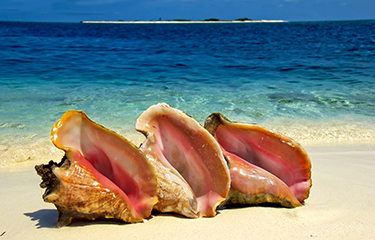Oceana to investigate status of Gulf of Mexico reefs, marine protected areas

Oceana will launch a scientific expedition to investigate and document the conditions of two of the most biodiverse underwater areas in the Gulf of Mexico, it announced.
The expedition will explore the Scorpion Reef (Arrecife Alacranes in Spanish) and the Bajos del Norte National Park. The marine protected area, located 140 kilometers north of the Yucatan Peninsula, is the largest reef in the southern Gulf of Mexico, Oceana said.
“Our objective is to collect scientific information that allows us to determine the current status of this marine protected area (MPA), and to use this information to promote the changes needed to protect and guarantee the future of this important ecosystem,” Renata Terrazas, leader of Oceana in Mexico, said.
Terrazas said that the reef is home to numerous endangered species as well as commercial species that reproduce there and later migrate to areas where fishing is allowed once they’ve matured.
The Project Alacranes expedition will conduct environmental DNA analysis and photomosaic modeling intended be used in the creation of 3D maps of the reefs, to help build a census of the species that live in or migrate through the area. At least 136 species of fish, 34 species of coral, various dolphin species, and commercially-valuable marine animals – such as queen conch and grouper – live in the two areas that will be explored by the expedition.
“Despite being a protected area, the Scorpion Reef is not exempt from pollution, illegal fishing, and potentially destructive tourism, threats that must be fought,” Terrazas said. “In the case of Bajos del Norte, the risk is greater because it has no legal protection, and very little research has been done on its status, nor on the species that live there.”
Mariana Reyna, leader of the expedition, also noted Scorpion Reef’s importance in the face of climate change and warming ocean waters.
“International studies include the Scorpion Reef on a list of coral reefs that have a better chance of surviving the effects of climate change. That is why it is so important to explore these places where few expeditions have been and with technology that has never been used in these areas to collect the evidence necessary to protect and preserve this habitat,” Reyna said.
Photo courtesy of MARI TERE/Shutterstock






Share